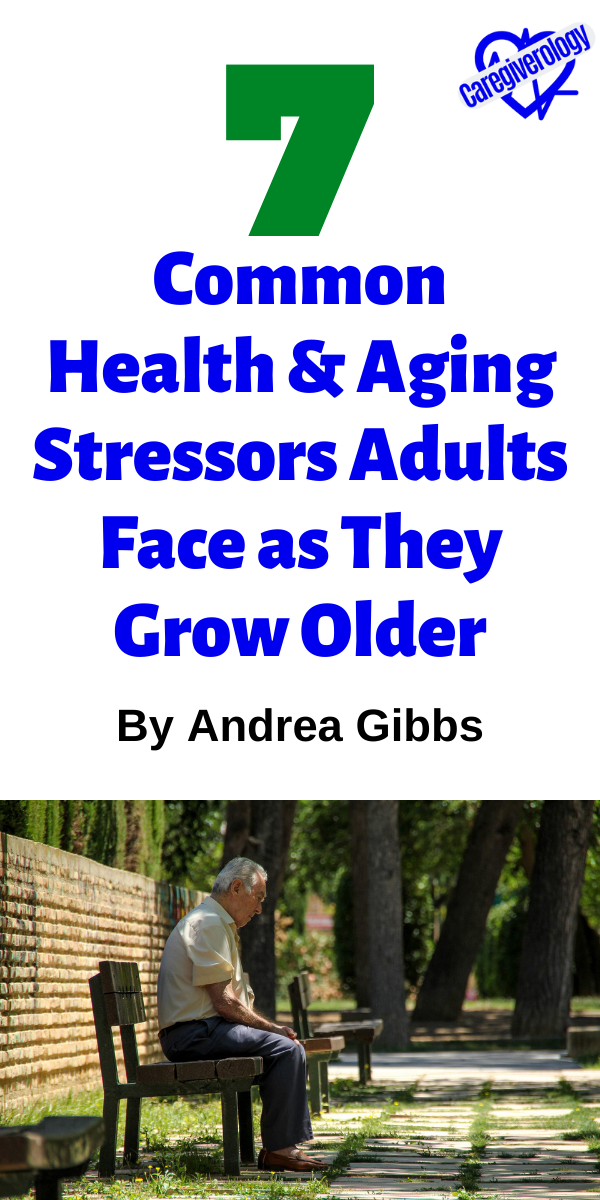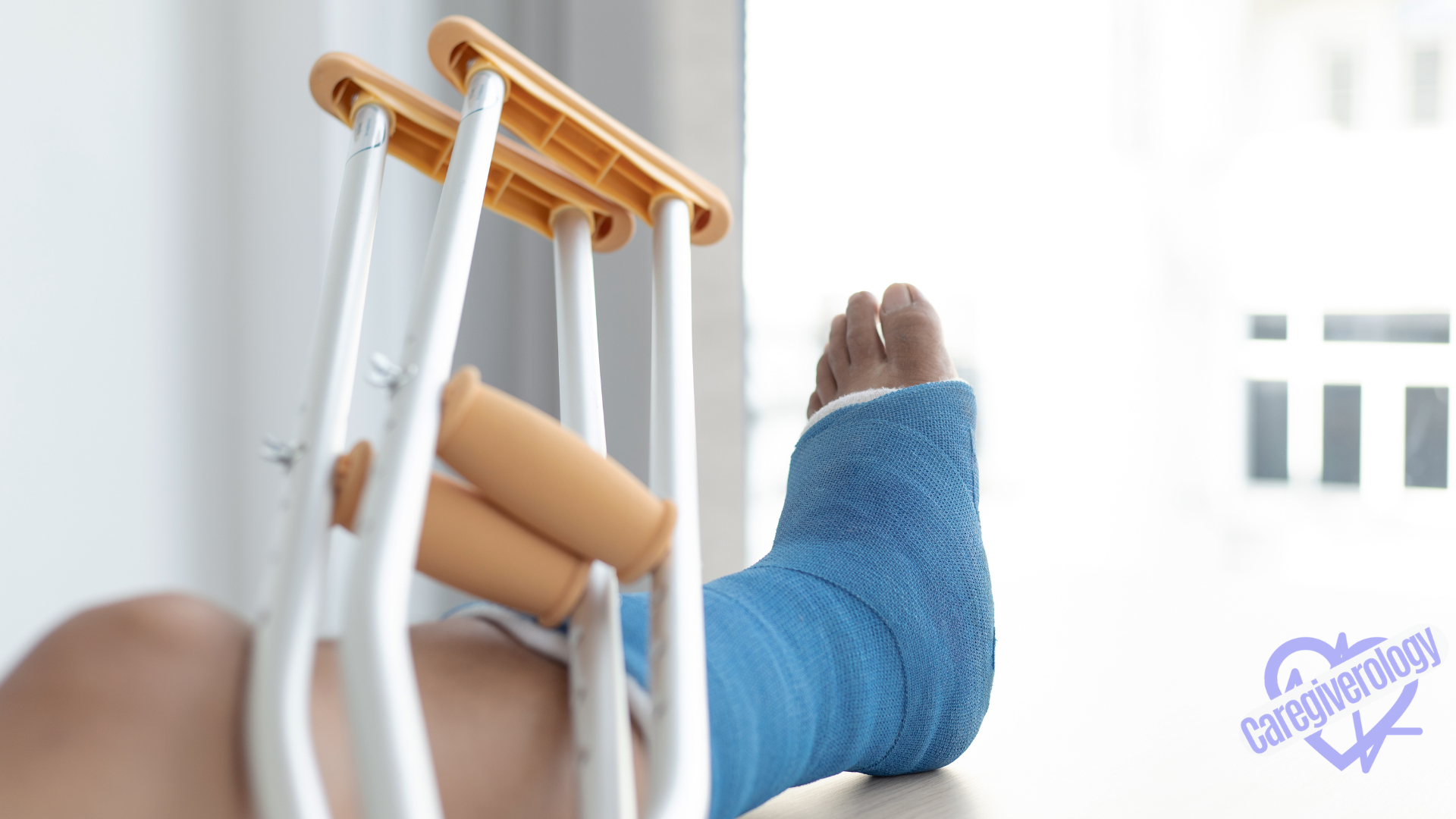7 Common Health and Aging Stressors Adults Face as They Grow Older
As your loved ones get older, it can be easy to forget that they're not exempt from common health and aging stressors. Just because they're living longer doesn't mean they don't have concerns about practically anything else in life. For many older adults, this can lead to a variety of unpleasant feelings and even physical symptoms.
As such, it becomes especially important for those closest to adults over the age of 50 to be aware of some common health and aging stressors adults face as they grow older; So that you can be ready to offer them a helping hand.
This article will look at the top 7 common health and aging stressors adults face as they grow older; So that you can get a deeper understanding of some of the issues they might be facing on a daily basis. Let's begin:
1. Retirement
The first and most common health and aging stressors adults face as they grow older is retirement. This is because it leaves many adults without a clear sense of direction. Suddenly, they feel like they're losing their purpose in life, and finding a new path to follow isn't an easy task.
This can lead to feelings of depression and a great deal of uncertainty. You can help your loved ones deal with retirement by providing psychological and practical support. This will help them feel better about where they've been and drift into what lies ahead.
2. Injuries
Injuries are another common health and aging stressors adults face as they grow older. Many senior parents may experience some sort of fall and injury, even if it's a minor one. For example, an injury that leaves your loved ones with a limp could make them feel insecure and lead to feelings of isolation.
You can help seniors deal with this type of injury by encouraging a healthy lifestyle and understanding the importance of physical activity. This will help your loved ones stay grounded and healthy as they get older.
3. Feeling Alone
Feeling alone is a problem seniors experience when they reach their golden years. This is because many of your loved ones will have to deal with abandonment, either physically or emotionally. For example, a family member who's moved away could leave them feeling like they're losing a part of themselves, leading to feelings of sadness and the loss of their social identity.
You can help the elderly deal with the feelings of isolation they might be facing by reassuring them and helping them to focus on the people they enjoy spending time with. This will help them develop a sense of purpose and get through their difficult circumstances.
4. Death Of a Loved One
Death is inevitable, but this can be difficult to accept when it's a loved one of your own. When an older family member dies, it can leave your loved ones feeling an array of emotions. For example, they could feel sorrow and rage towards the situation or feel an emptiness that's hard to fill. It can also make them question their mortality, which leads to feelings of insecurity and anxiety.
You can help your senior loved ones deal with the death of a loved one by offering support through this difficult time and encouraging them to keep a positive outlook on life.
5. Illness
When your senior loved one is in their golden years, they'll inevitably develop some sort of illness or health condition. This can range from a sore throat to something more complex like cancer. Whatever the illness, this can be a difficult situation to deal with, especially if it's serious and life-threatening.
For example, when they're dealing with the condition that leaves them bedridden or in pain, they might feel isolated and have trouble accepting their current state of health and may consume glucosamine chondroitin (amazon). You can help them deal with these feelings of hopelessness by being there for them and encouraging them to have faith in their ability to overcome their condition.
6. Loss of Physicality (Strength and Agility)
As your family members get older, it's only natural that they'll lose some physicality. This can make them feel weaker and less independent, which isn't easy to accept when they spend their lives being fit and healthy. This can lead to various feelings and issues, such as loss of control or insignificance.
You can help your loved ones deal with the loss of physicality they might be experiencing by providing them with some extra help around the house and encouraging them to stay engaged in physical activities. This will help them feel more confident and give them something to focus on as they get older.
7. Loss of Abilities
As your loved ones get older, they'll inevitably lose some of their abilities and become incapable of doing things that were easy for them. This can make them feel like a burden or helpless toward the world. For instance, many seniors find it difficult to use the bathroom by themselves. This could lead to various feelings, ranging from embarrassment and frustration to loneliness and helplessness.
You can help the elderly deal with the loss of abilities they may be experiencing by letting them know it's not their fault and that things will improve. This will help your loved ones feel more comfortable with who they are and focus on their strengths instead of their limitations.
Conclusion
There are certainly many things that older adults face as they grow older. The fear that it might all be too much to handle can become paralyzing and take over even the most positive individuals. However, there are meaningful things that you can do to help them stay positive and not allow the stressors mentioned above to destroy their sanity, emotional peace, or ability to function daily.
Author Bio

Andrea Gibbs is the Content Manager at SpringHive Web company, a firm that offers web design services, maintenance, and Internet marketing. She specializes in content marketing, social media, and SEO. She also serves as a blog contributor at Wellness Home Care, devoted to encouraging healthy lifestyle choices in senior citizens. When she's not writing, she can be found running hills or hiking trails, rooting for her favorite team (the Pittsburgh Steelers), or watching a good Netflix series.
Mental Health and Support Articles
From 7 Common Health and Aging Stressors Adults Face as They Grow Older to Home
Recent Articles
-
Lifestyle Medicine Explained: Guiding You Back to Better Health
Apr 20, 25 09:51 AM
Did you know that 80% of chronic diseases—like heart disease, diabetes, and obesity—are preventable through lifestyle changes? Yet, many people rely solely on medication rather than addressing the roo… -
What to Expect During Post-Operative Recovery at Home - Caregiverology
Apr 08, 25 08:21 PM
Surgery may be over, but the journey to full recovery is just beginning, and for many people, the hardest part happens after they leave the hospital. -
How to Plan for Aging: Financial, Health, and Lifestyle Considerations
Mar 29, 25 12:40 PM
Did you know that 70% of people over 65 will need some form of long-term care? Yet, many delay planning until it’s too late. Aging is inevitable, but how we experience it depends on preparation.





New! Comments
Have something to say about what you just read? Leave a comment in the box below.